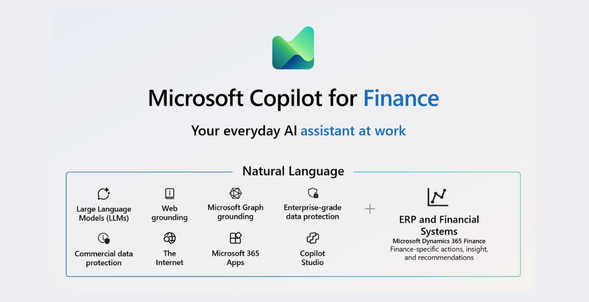
From Legacy Systems to Cloud-Native Agility: How Cloud 9 Infosystems Accelerates AWS Modernization
Modernize legacy systems with AWS—secure, scalable, and cloud-native solutions by Cloud 9 Infosystems.
In the world of tech-security, Binary 10 stands as a beacon of innovation and resilience, leading the charge in safeguarding enterprises against digital threats. Founded on the principles of trust and expertise, Binary 10 has emerged as a trusted partner for organizations navigating the complex landscape of cybersecurity.
With a proactive approach and unwavering commitment to excellence, Binary10 empowers enterprises to defend their assets and meet compliance requirements with ease. The client doesn’t only offer security services but a promise of trust and reliability.
At the onset of the project, Binary 10, faced a multitude of challenges regarding its security posture and operational efficiency. Despite having several security policies in place, Binary 10 recognized the need for a comprehensive assessment of its existing environment to identify vulnerabilities and areas for improvement.
One of the primary challenges revolved around the enrollment process for both personal and corporate laptops into Microsoft Intune and Microsoft Defender for Endpoint (MDE). Binary 10 sought a recommended approach to streamline this enrollment process, ensuring robust endpoint security across all devices.
Furthermore, Binary 10 encountered significant gaps in its security configurations, particularly the absence of Microsoft Defender in collaboration platforms such as Teams, SharePoint, and OneDrive. This posed a considerable risk to data integrity and confidentiality, highlighting the need for enhanced application-level security measures.
The complexity of managing Bring Your Own Device (BYOD) policies added another layer of challenge. Binary 10 faced difficulties in onboarding BYOD devices, especially those running Windows 10 Home edition, into Intune. Additionally, the process of offboarding devices upon user departure proved cumbersome, with challenges in retrieving license keys from departing users.
Moreover, the absence of robust data protection policies, such as the Rights Management System (RMS), raised concerns regarding data security and compliance. Binary 10 was unaware of the benefits of implementing comprehensive data protection measures to safeguard sensitive information.
Another notable challenge stemmed from shared hosts by a subset of users, particularly in scenarios involving accounting and office applications. Limited control over these shared hosts made it difficult to enforce conditional access policies, posing a potential security threat.
Additionally, the presence of unresolved errors across various devices indicated operational inefficiencies and potential security risks. Binary 10 sought proactive measures to address these errors and ensure the smooth functioning of its IT infrastructure.
Cloud 9, leveraging its expertise in technology consulting and security assessments, devised a comprehensive solution to address the challenges faced by Binary 10, particularly regarding the enrolment process into Microsoft Intune and Microsoft Defender for Endpoint (MDE).
Phased Approach to Enrolment: Cloud 9 recommended adopting a phased approach to enrolment, starting with a small group of pilot users and gradually expanding to full-scale deployment. This strategy allowed Binary 10 to monitor the helpdesk load and enrolment success of each phase, ensuring a smooth transition and effective evaluation of success criteria before migrating to subsequent groups.
DNS Registration for Familiar Domain Connectivity: To enhance user experience and connectivity, Cloud 9 advised setting DNS registration to connect Binary 10’s domain name with Intune. This ensured users were presented with a familiar domain when accessing Intune and utilizing resources, streamlining the enrolment process and enhancing user adoption.
Enhancements across Exchange Online, SharePoint, Teams, and OneDrive: Cloud 9 performed a detailed assessment of Binary 10’s environment and recommended improvements across various platforms, including Exchange Online, SharePoint, Teams, and OneDrive. These enhancements aimed to bolster security measures and optimize the performance of essential collaboration tools.
Streamlined Onboarding and Offboarding of BYOD Devices: Cloud 9 assisted Binary 10 in customizing scripts for easy onboarding and offboarding of BYOD devices. Additionally, Cloud 9 shared MSI (Microsoft Installer) to facilitate manual execution in scenarios where automation to recover keys failed or immediate offboarding of employees was necessary. This streamlined the device lifecycle management process, ensuring efficient onboarding and offboarding procedures.
Policy Configuration for Android and iOS Devices: Cloud 9 configured policies for Android and iOS devices, eliminating the need for device registration. With Cloud 9’s policy configuration, mobile devices seamlessly adhered to security policies without requiring additional registration steps, enhancing device security and user experience.
While the specific, quantifiable business outcomes would be tailored to Binary10’s metrics and goals, the implementation of the security solution and engagement with Cloud 9 is poised to deliver several positive outcomes:
Improved Security Posture:
• Measurable increase in the overall security score, reflecting the efficacy of implemented security policies.
• Reduction in the number of security vulnerabilities and incidents, fortifying the security posture.
Enhanced Endpoint Protection:
• Quantifiable improvements in endpoint protection metrics, evidenced by decreased malware incidents and successful phishing attempts.
• Increase in the percentage of devices with up-to-date antivirus definitions and security patches.
Efficient Device Management:
• Streamlined device onboarding and offboarding processes, leading to reduced time and effort.
• Decrease in support tickets related to device management and security configurations.
Increased User Productivity:
• Improved user experience with laptop enrolment, translating to heightened productivity.
• Decrease in user-reported issues related to security configurations or device management.
Data Protection:
• Tangible improvements in data protection metrics, manifesting as reduced data breaches or unauthorized access incidents.
Reduction in Security Incidents:
• Measurable decrease in security incidents, signifying the effectiveness of security measures.
• Lower financial impact associated with security incidents, mitigating risks of data breaches or system compromises.

Size: 11-50 employees
Location: Mumbai
Technology

Modernize legacy systems with AWS—secure, scalable, and cloud-native solutions by Cloud 9 Infosystems.

Cloud cost optimization is now a strategic priority for IT leaders. Discover proven best practices to reduce cloud spend by 20–30%, improve cost visibility, and maintain performance across AWS, Azure, and multi-cloud environments.

Discover how Azure AI Foundry enables enterprises in India to operationalize AI agents securely, govern them effectively, and scale AI without compliance risk.
Error: Contact form not found.
